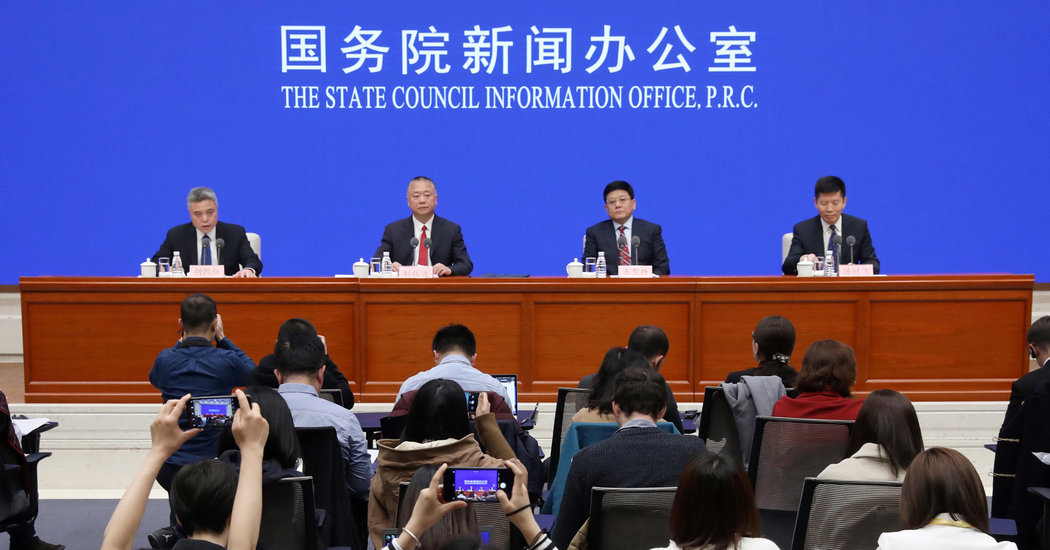
01 Apr China Bans All Types of Fentanyl, Fulfilling Pledge to Trump
BEIJING — China announced on Monday that it would treat all variants of the powerful opioid fentanyl as controlled substances, making good on a pledge the country’s leader, President Xi Jinping, made to President Trump late last year.
China’s export of the drug, a family of synthetic opioids blamed for tens of thousands of overdoses in the United States, has long been a source of tension in relations and has, more recently, become tangled up in the ongoing trade war.
China already treats more than two dozen variants of fentanyl and its precursors as controlled substances, thus strictly regulating their production and distribution, but it has banned those variants only after reviewing them case by case, a process that can be lengthy.
The latest step would expand restrictions to all “fentanyl-related substances,” effective May 1. That could plug gaps that, experts and American officials have said, allowed manufacturers in China to make novel variations of the drug that were not technically illegal.
In December, Mr. Trump announced a promise Mr. Xi made to him at the Group of 20 meeting in Buenos Aires, saying then that the step formalized on Monday could be a “game changer.” He had previously taken to Twitter earlier to excoriate China over the issue, accusing it of “killing our children and destroying our country.”
Officials from three Chinese agencies, including the Ministry of Public Security, announced the change at a news conference that included representatives from foreign embassies, including the American Embassy. As before, however, the officials denied that China was causing the scourge of fentanyl-related deaths in the United States, saying the blame lay there.
Liu Yuejin, vice commissioner of the National Narcotics Control Commission, said that accusations by American officials lacked evidence and that China cooperated closely with the United States on cases of illegal trafficking, which was “extremely limited.”
“We believe that the United States is the main cause of the problem of the abuse of fentanyl in the United States,” he said, citing weak enforcement and a culture of addiction. He noted that the United States consumed 80 percent of the world’s opioids while comprising only 5 percent of the world’s population.
Weak regulation over China’s sprawling chemical industry has raised the possibility that a new ban to cover all forms of fentanyl might not be entirely effective. Mr. Liu, however, promised that China would strictly enforce the new rules, as officials have insisted they have thus far.
While American officials have long complained about China’s commitment to previous pledges, the announcement appeared to be a sign that China is prepared to make compromises to resolve at least some of its differences with the United States in hopes of closing a deal on trade. Negotiators met in Beijing last week to continue hashing out an agreement and are scheduled to meet in Washington again this Thursday and Friday.
“It may very well be something that we end up writing into this agreement,” Robert Lighthizer, Mr. Trump’s top trade negotiator, said in congressional testimony in late February, referring to efforts to get China’s commitment on fentanyl in writing. “But it clearly is something the president views himself as having a commitment on. And that we are monitoring to see in fact if there are changes.”
[ad_2]
Source link



No Comments